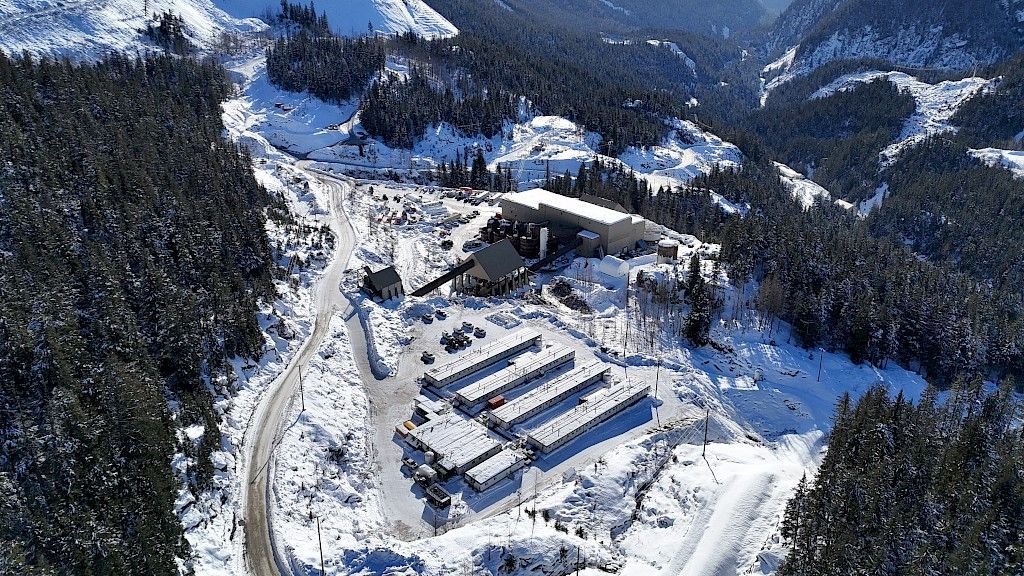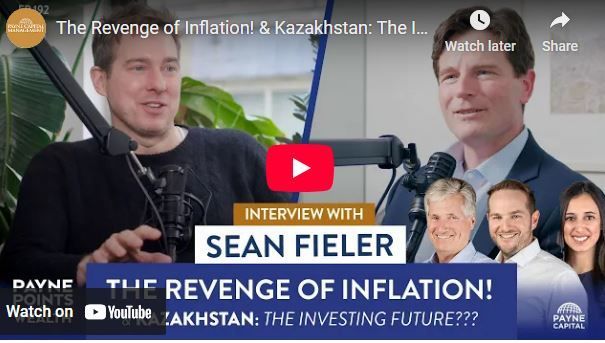Kuroto Fund, L.P. - Q2 2022 Letter
Dear Partners and Friends,
PERFORMANCE & PORTFOLIO
In the second quarter of 2022, Kuroto Fund, L.P. declined -12.6%. For the year to date through June 30th, the fund declined -15.5%.
Visit our performance page to view the Kuroto Fund, L.P. fund summary in more detail.[1]
the scourge of misaligned DIRECTORS
The corporate governance norms in emerging and frontier markets companies are qualitatively different from those in developed markets. Most notably, in all except one of our investments, the founder effectively controls the company through his role in the C-Suite, board room, and as a major shareholder. This sizable shareholding of the controlling party generally provides a tight alignment between the controlling and minority shareholders. That said, the arrangement entails a high degree of key man risk and creates enormous uncertainty when the founder retires. While we are willing to accept key-man risk associated with the founding shareholder, the general failure of these companies to build a board of financially aligned non-executive directors strikes us as imprudent and unnecessary.
Accordingly, we have adopted a policy of voting against directors who have served for two or more years but have invested less than two years of directors’ fees into the company’s stock. We will also be actively corresponding with the managements and boards of Kuroto Fund’s holdings to express our view regarding the financial alignment of directors and shareholders. In our opinion, shareholders should not support directors who lack meaningful financial alignment with the companies for which they bear ultimate governing responsibility. This will result in us voting against a meaningful number of non-executive directors.
In our opinion, adopting a clear, lower-bound for director share ownership is the best way to push back on the indifference of boards to non-executive-director stock ownership and the decision of some companies to prohibit non-executive directors from owning stock all together. Amazing as it sounds, a handful of companies restrict their non-executive directors from owning shares in the companies they oversee. These prohibitions on share ownership are intended to ensure that non-executive directors are unbiased in their representation of all stakeholders in a given company. Unfortunately, these prohibitions often lead to poor financial outcomes for shareholders. Lest you think we are making this up, we offer South Africa’s Gold Fields—the fifth largest gold producer in the world—as a case in point.
The Gold Fields board has adopted a policy of prohibiting its non-executive directors from owning the company’s stock. The logic of this policy is derived from a governance report named after Mervyn King, a former judge of the Supreme Court of South Africa. The fourth iteration of this governance report, the King IV Report published in 2016, makes the case that independent directors must represent all stakeholders, not just shareholders: “…[I]nstead of prioritizing the interests of the providers of financial capital, the governing body gives parity to all sources of value creation, including among others, social and relationship capital as embodied by stakeholders”. Given this need to represent all stakeholders, aligning directors’ financial interests with shareholders creates an undesirable bias in their decision making. In effect, the King IV Report sees non-executive directors as a priesthood serving a higher cause. To perform their duties properly, directors must be freed from a worldly profit motivation.
To be fair, Gold Fields’ non-executive directors are an impressive lot. They hold advanced degrees from elite universities. They have studied mine engineering and geology. They’ve run telecom companies and investment banking practices. They have served in a variety of prestigious academic and government capacities. And, we can be sure they are steeped in the latest and best research on good governance. The company’s website proudly touts its board’s qualification to steward a complex enterprise like Goldfields.
As impressive and diverse a group as they are, Gold Fields non-executive directors all share one important trait. They lack any financial alignment with the shareholders of Gold Fields.
Name: Shares Owned / Options Owned
Yunus Suleman: 0 / 0
Steven Reid: 0 / 0
Alhassan Andani: 0 / 0
Peter Bacchus: 0 / 0
Maria Christina Bitar: 0 / 0
Terence Goodlace: 0 / 0
Jacqueline McGill: 0 / 0
Philisiwe Sibiya: 0 / 0
Not surprisingly, it took only a few years for Gold Fields’ high-minded prohibition on non-executive-director share ownership to manifest itself in a decision that is particularly undesirable to shareholders. On May 31st of 2022, Gold Fields announced its bid to acquire Yamana Gold for $6.7b of Gold Fields stock. The deal has three obvious problems: 1) it offers shareholders no synergies; 2) it is dilutive to Gold Fields shareholders; 3) it triggers offensively large payouts to the management of Yamana. So, why would the Gold Fields board agree to such an obviously unattractive deal?
The board of Gold Fields offers six reasons for the acquisition of Yamana at a 34% premium: 1) Asset Quality; 2) Cash Flow Growth; 3) Jurisdiction Quality; 4) Pipeline; 5) Competitive Advantage; 6) ESG Commitment. Notably absent from the list is any mention of the value destructive premium the Goldfield’s board agreed to pay for Yamana. The reason Gold Fields doesn’t mention valuation is that the deal is dilutive on every measure imaginable. In our opinion, the math is so clear that this is a deal that could only be approved by a board that lacks meaningful financial alignment with the company’s owners.
This is not to say that the Gold Fields non-executive directors don’t stand to benefit from the deal. They will be directing a larger company with assets in more attractive jurisdictions. It is also true that the assets they are acquiring are more ESG friendly, and they are acquiring a pipeline of projects to finance and build in the future. So, as a board member that doesn’t own stock the deal is a painless opportunity to oversee a larger, better company. For the investment bankers and lawyers involved, it is also great—as all deals are. In fact, like most bad deals, this deal is great for just about everyone other than the actual owners of the company that is overpaying.
The market, to its credit, immediately sensed that the Gold Fields’ board had betrayed their shareholders. The shares of Gold Fields traded down a whopping 20% on the day of the announcement. This abrupt derating of Gold Fields shares in turn cut the premium to Yamana by more than two-thirds. The panicky behavior of both Gold Fields and Yamana since the announcement suggests that the deal may fail to win approval from the shareholders of either company. With the premium radically reduced, Yamana shareholders may reject a deal which would leave them saddled with a demonstrably misaligned Gold Fields board. The Gold Fields shareholders may reject this deal simply because it is value destructive.
Happily, we are not invested in either company. But this deal clearly highlights to us the problem of unaligned non-executive directors absent a controlling shareholder. Lest companies complain that our bar is too high, we offer a recent Kuroto investment, Kosmos Energy, as an example of a more responsible approach to director alignment. Kosmos is the one company we’re invested in that does not have a meaningful founder presence. However, it makes up for it by requiring meaningful stock ownership among both the management and non-executive directors. Specifically, Kosmos requires non-executive directors to own five years of their cash compensation in stock. Kosmos is not an anomaly – it is common for companies in the oil and gas industry to mandate that board members own at least three years of directors’ compensation in stock. Not coincidentally, the industry has turned into a sector which prioritizes returns on and of owners’ capital.
Sincerely,
Sean Fieler and Brad Virbitsky
[1] Sector exposures shown as a percentage of 6.30.22 pre-redemption AUM. Performance contribution is derived in U.S. dollars, gross of fees and fund expenses. Unless otherwise noted, all company data is derived from internal analysis, company presentations, or Bloomberg. All values are as of 12.31.21 unless otherwise noted.
Endnote: Unless otherwise noted, all company-specific data derived from internal analysis, company presentations, Bloomberg, or independent sources. Values as of 6.30.22, unless otherwise noted.
This document is not an offer to sell or the solicitation of an offer to buy interests in any product and is being provided for informational purposes only and should not be relied upon as legal, tax or investment advice. An offering of interests will be made only by means of a confidential private offering memorandum and only to qualified investors in jurisdictions where permitted by law.
An investment is speculative and involves a high degree of risk. There is no secondary market for the investor’s interests and none is expected to develop and there may be restrictions on transferring interests. The Investment Advisor has total trading authority. Performance results are net of fees and expenses and reflect the reinvestment of dividends, interest and other earnings.
Prior performance is not necessarily indicative of future results. Any investment in a fund involves the risk of loss. Performance can be volatile and an investor could lose all or a substantial portion of his or her investment.
The information presented herein is current only as of the particular dates specified for such information, and is subject to change in future periods without notice.








Equinox Partners Investment Management, LLC | Information as of 12.31.24 unless noted | *SEC registration does not imply a certain level of skill or training
Equinox Partners Investment Management, LLC | Site by Fix8

